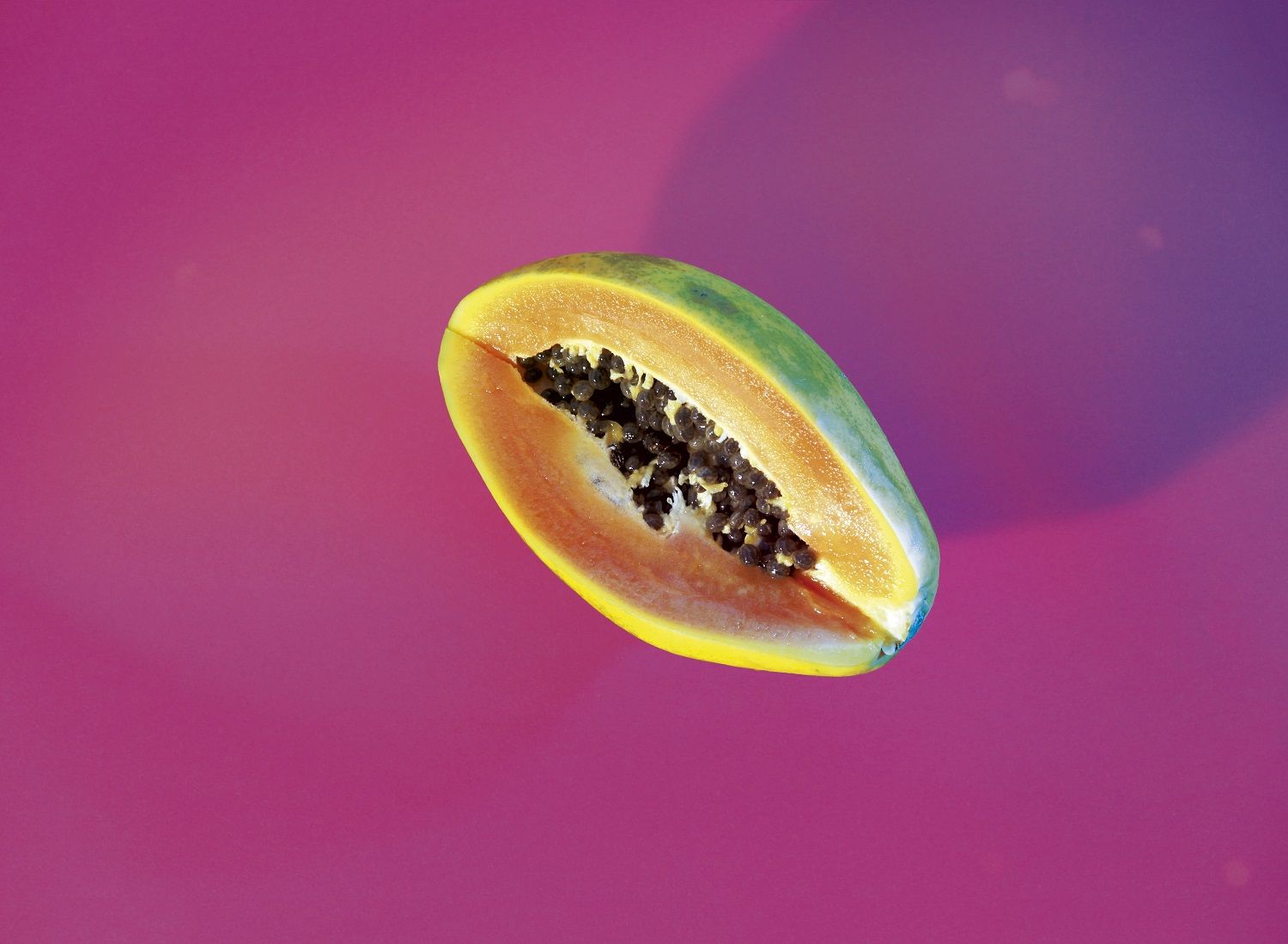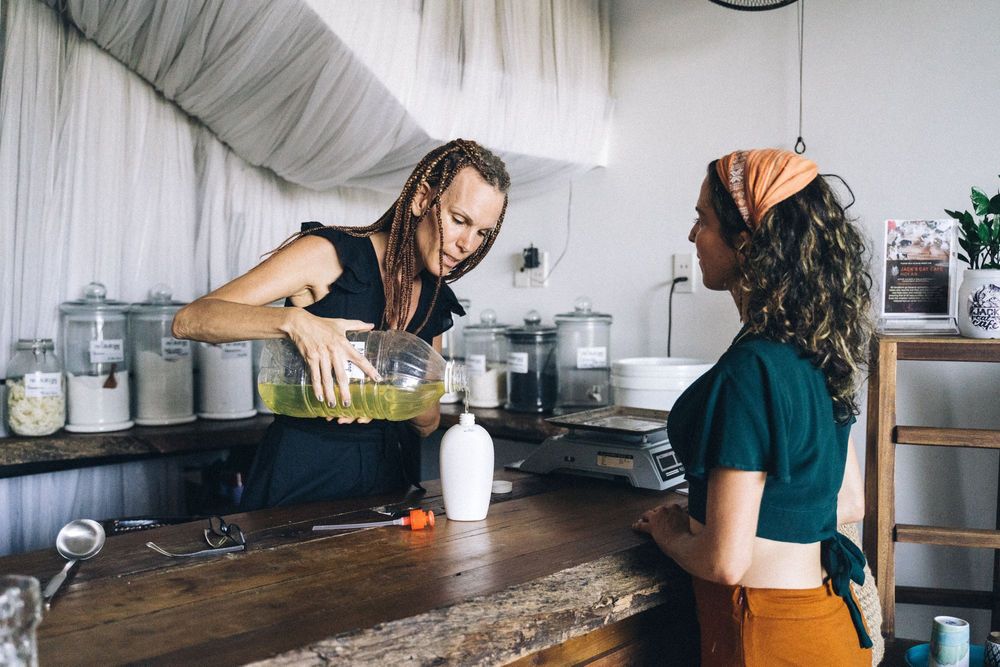Which fruit is the master of fruits?
Papaya, of course!
Not only it's super easy and fast to grow in your own garden and can be used in a variety of delicious meals; it's also a nutritious powerhouse packed with vitamins and antioxidants. ⠀
⠀
What are the ✨magical✨ reasons you need papaya in your life?
Let's find out!
#12: It's super easy to grow

If you're in a place with a warmer climate, chances are you can easily grow more papaya in the corner of your yard than you can eat! I personally grow so much I'm constantly giving it away, although I grow it in more than just one corner of my yard.
To find out just how easy it is to grow papaya check out the tutorial I made (below). It might leave you wondering if there really is a conspiracy about why more people aren't growing something this easy and delicious!
#11: It's versatile
Unripe green papayas can be cooked and have an interesting squashy-potatoey flavor, and as the fruit ripens, the flavour begins to change from something like a honeydew to a cantaloupe, to something very tropical and sweet.
Once a papaya gets too ripe though, it starts to taste, well… just don't do it. There is a short window from the time it is fully orange to the time it starts getting rotten spots on it and tasting kinda funky.
However, fermented papaya is popular in many parts of the world (I'm thinking about making some papaya kombucha and trying this out), which has some pretty cool health benefits for the elderly I'll discuss below.
The leaves can also be cooked down into a team, which has shown to be effective for many things including "significantly accelerating the rate of increase in platelet count among patients with dengue fever and dengue hemmorragic fever." Good to have around just in case that happens to be an issue where you live.
One point that's important to mention, though, is that people should take precautions when preparing unripe green papaya and always avoid eating uncooked green papaya.
The plant contains latex and other substances which may cause a skin reaction or severe allergic reaction, especially in people sensitive to latex and pregnant women. Once the fruit is mostly yellow or orange, it is generally ok to eat even if it has a few green spots on it, because the inner flesh tends to ripen and lose the latex found most notably in unripe green papaya.
#10: It provides skin protection
Papayas are high in antioxidants, including lycopene and vitamin C, which may help the skin heal itself faster and prevent signs of aging.
According to one recent study, people adding lycopene to their diet for 10–12 weeks had significantly decreased redness on their skin after being exposed to the sun. In another study, older women consuming vitamin C, lycopene, and other antioxidant supplements orally for 14 weeks had a measurable reduction in wrinkle depth on their faces in addition to more collagen fibers deposited in their skin.
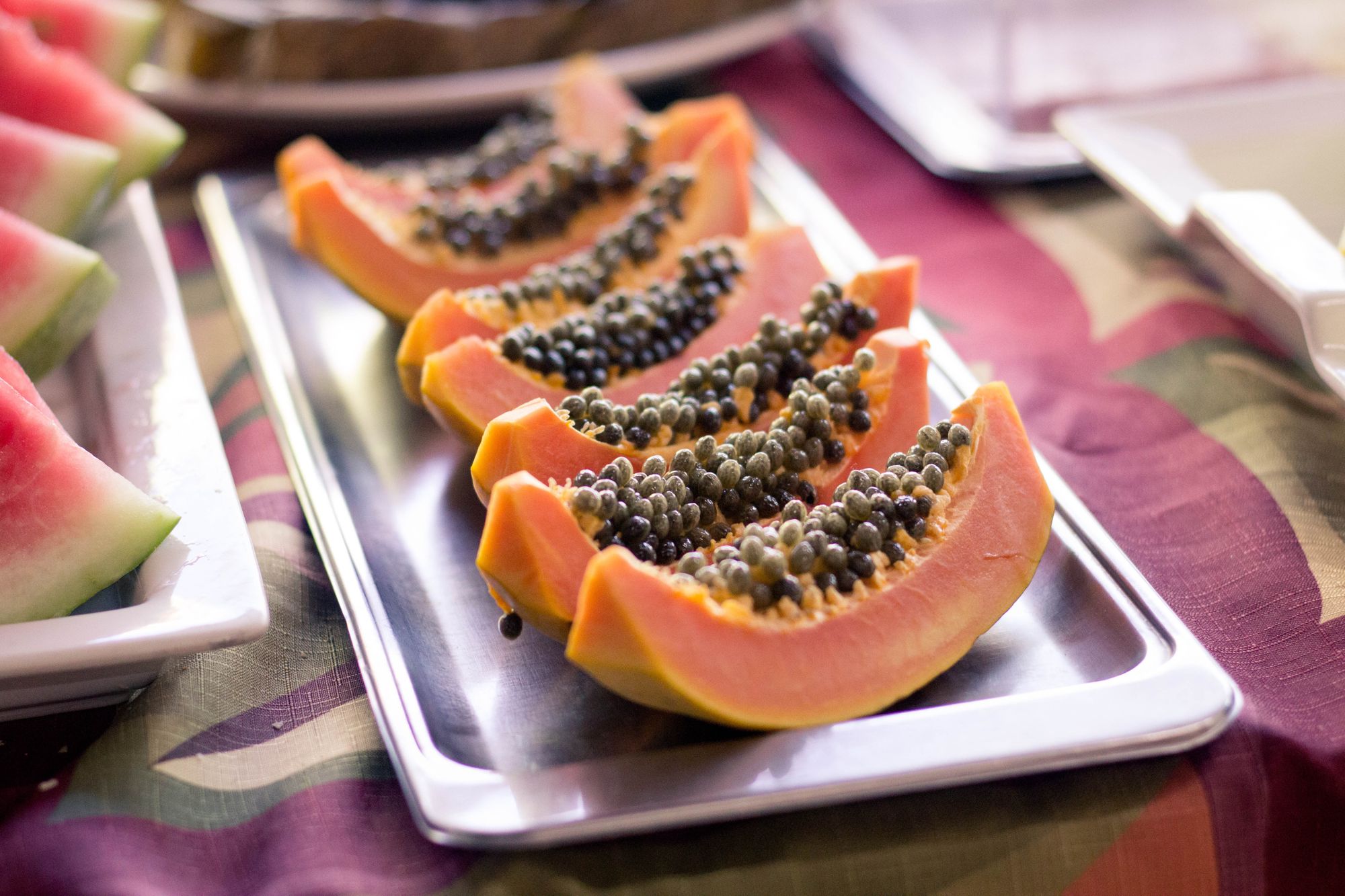
#9: It helps with digestion
Papaya is known in many parts of the tropics for its ability to help with constipation and other digestive problems including IBS.
This is probably because papaya contains an enzyme called "papain," which aids in the digestion of certain proteins, and as a side bonus, it can also be used to tenderize meats. Research in 2013 determined eating certain preparations of papaya contributed to "the maintenance of digestive tract physiology," helping with many of the symptoms present with IBS.
#8: It is nutrient-dense
Just one small 6oz papaya contains many other vitamins. Here's a quick breakdown based on the FDA’s Recommended Daily Intake:
- Vitamin C: 157%
- Vitamin A: 33%
- Vitamin B9: 4%
- Potassium: 11%
These in addition to trace levels of magnesium, calcium, vitamin K, E, B5, B3, and B1.
#7: It helps with arthritis
People who have low levels of vitamin C have been shown to be 3 times more likely to develop certain rheumatoid arthritis, so eating good sources of the antioxidant in fruits like papaya may be beneficial.
Eating too much vitamin C, on the other hand, can cause problems too, so try not to get too excited. To find out more about getting the right amount of vitamin C for joint health go here.
#6: It reduces oxidative stress
Oxidative stress happens when reactive molecules build up in your system. This can trigger many diseases.
Papayas contain carotenoids in addition to lycopene, vitamin C, and many other antioxidants, which can neutralize free radicals and may contribute to better health in many areas. We'll go into a few of these below areas in more depth.
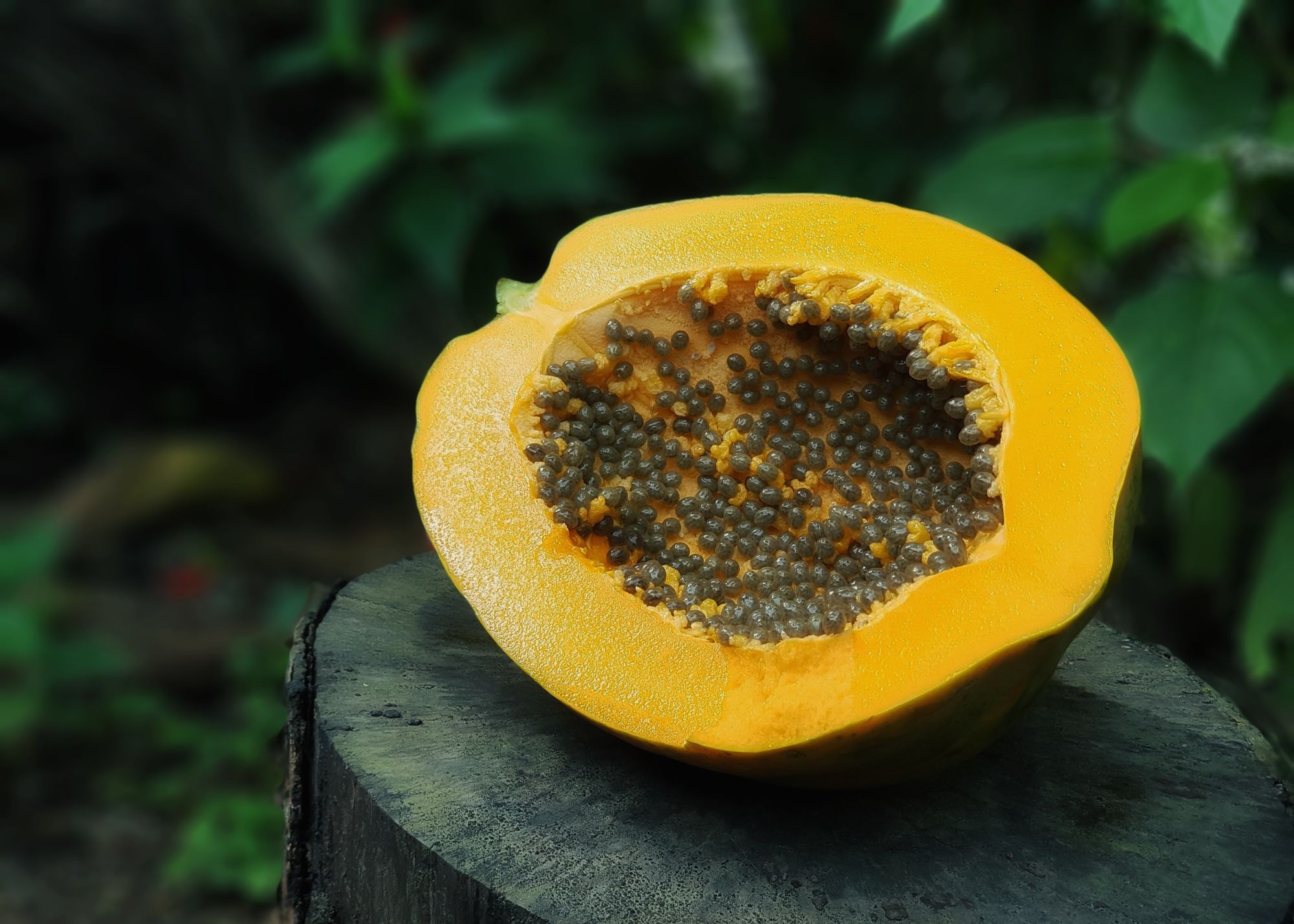
#5: It relieves inflammation
Increasing your intake of antioxidant rich fruits like papaya have been shown to reduce inflammatory markers.
One study even showed the carotenoids, one of the most notable antioxidants found in papayas had a significant effect on reducing them for men.
Why is this so important? Chronic inflammation is one of the main roots of many diseases, such as cancer, heart disease, and certain neurological disorders.
#4: It supports memory
Many researchers believe one of the factors contributing to Alzheimer's disease is an excess of free radicals, which causes oxidative stress in the brain. It may lead to plaque formations, neurofibrillary tangles, and brain cell death associated with many degenerative brain disorders.
Some of the main free radical types to blame are from excessive amounts of transition metals, like too much iron. Papayas are high in lycopene, which is known especially to help bind and remove some of these excess metals.
One study showed Alzheimer's patients who drank a fermented papaya extract experienced a 40% drop in a certain biomarker that indicates oxidative damages in the DNA after just 6 months! The biomarker they studied, by the way, is also associated with aging and cancer.
#3: It slows aging
While fermented papaya juice may not be the actual fountain of youth, it turns out, research suggests fermented papaya may help protect against RBC oxidative damage.
In the study, elderly people drinking fermented papaya preparation for 4 weeks had decreased oxidative abnormalities in the blood often associated with aging and degenerative diseases.
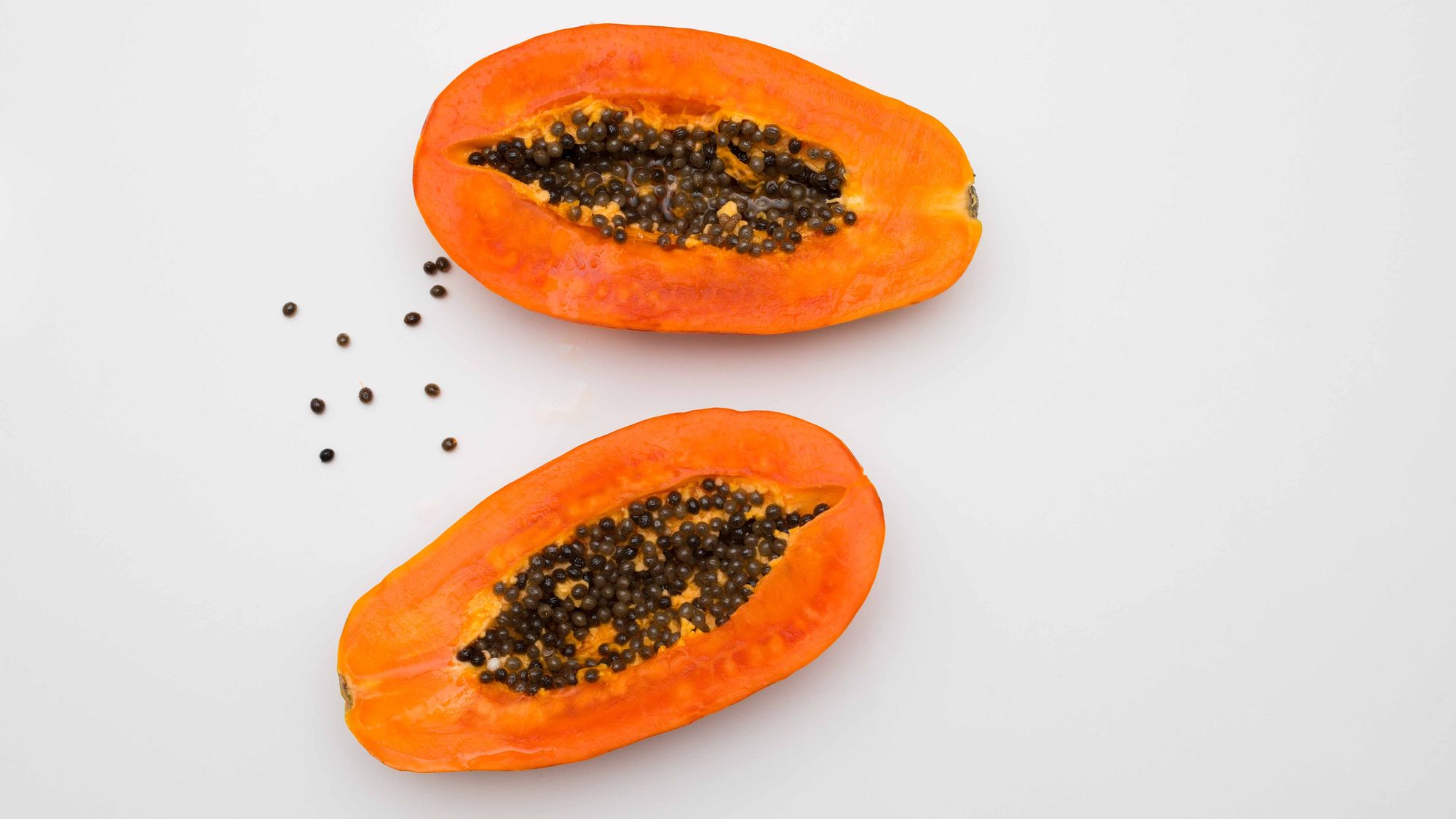
#2: It helps with diabetes
In yet another study about…. you guessed it, fermented papaya juice, it was revealed that after 14 weeks pre-diabetic patients had a significantly reduced rate of "hemolysis and accumulation of protein carbonyls in the blood plasma."
This means the antioxidants bound to certain free radical compounds in the blood keeping them from harming red blood cells and other healthy cells in ways that are commonly thought to contribute to diabetes.
A question we should be asking perhaps is: why haven't most people even heard of fermented papaya juice as a healthy drink option?? I'd like to try some, please!
#1: It may prevent cancer
Scientists know that chronic inflammation and higher rates of free radical-induced oxidative lesions in the DNA is associated with elevated cancer risk.
Because papayas are so high in antioxidants that neutralize these free radicals and help to decrease inflammation, there's a good chance that eating papayas may help limit your chances of getting it.
You might have heard of people making a tea or extracts out of papaya leaves to fight or prevent cancer. That's because in 2010 scientists concluded that "papaya has a dramatic anticancer effect against a broad range of lab-grown tumours, including cancers of the cervix, breast, liver, lung and pancreas." In addition, the scientists point out it also helps the immune system regulate itself (something critical for your body to fight cancer).
All this benefit but what's really incredible is that the lead scientist, Dr. Dang, also found that "the papaya extract did not have any toxic effects on normal cells, avoiding a common and devastating consequence of many cancer therapy regimens."
That's something the indigenous peoples of Vietnam and Australia have known for a long time, apparently. Imagine that, but since pharmaceutical companies can’t make tens of thousands of dollars per treatment on papaya leaf extract, don’t expect to hear about that in the mainstream media!
All I can tell you is, I try to get in my fair share of it, and that's one of the reasons I started growing papaya. Even if you live where it's too cold to get your papaya trees to produce fruit, you can likely still grow them in a protected area to get some leaves off them in the warmer months.
Hope you find the article helpful! Let me know what you think in the comments, and don't forget to like the video and subscribe for updates!
Join the budding community of conscious consumers right now and help save the planet! The NatureHub Conscious Community app is now available on both Google Play Store and iOS App Store.
Download it here: Apple iOS • Android


